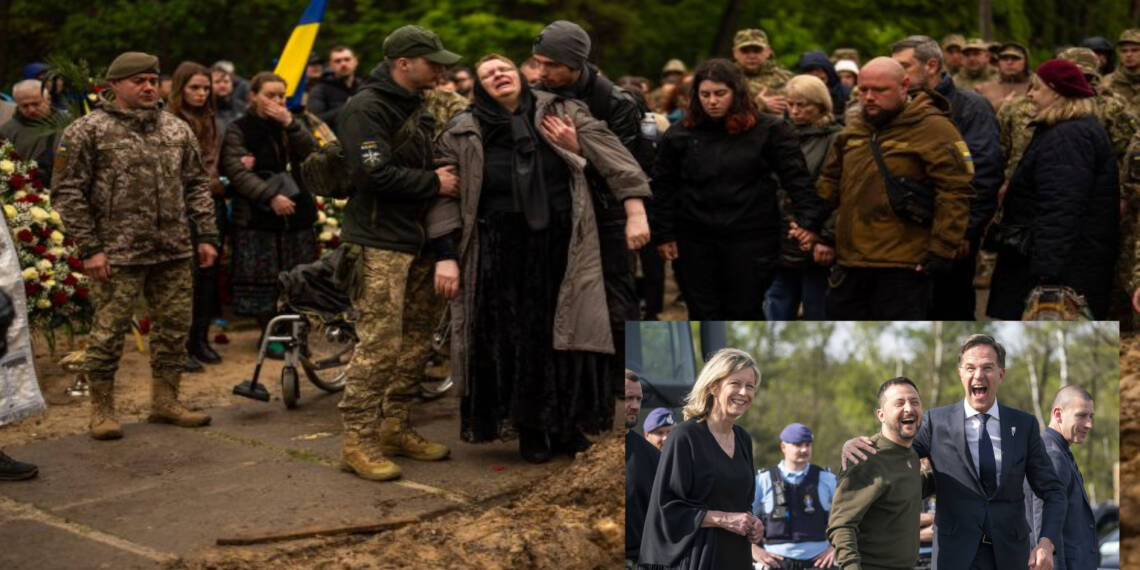As Ukraine continues to fight a prolonged and brutal war with Russia, domestic tensions over military conscription are growing. Recent statements from regional authorities have stirred fresh controversy, urging citizens to “cherish” conscription officers—even as videos and eyewitness reports highlight increasingly aggressive tactics used to draft new soldiers into the armed forces.
In some regions, conscription officers have allegedly been stopping young men in public places, issuing summonses on the spot, and in extreme cases, using physical force to detain and transport individuals to military enlistment offices. Yet rather than addressing widespread public concern over these tactics, officials are now warning citizens not to criticize or film the actions of recruitment officers—sparking accusations of government overreach and suppression of dissent.
A Struggling War Effort Meets Shrinking Manpower
Ukraine’s military has been stretched thin after more than three years of full-scale war. Battlefield losses, fatigue among volunteer fighters, and a declining recruitment pool have left Kyiv with little choice but to expand conscription efforts.
To meet these demands, Ukraine’s Territorial Centres of Recruitment and Social Support (TCR) have been empowered to identify eligible men and enforce draft orders. While technically under the Ministry of Defense, TCR officers are often seen conducting street patrols, issuing summonses in shopping centers, and reportedly even pulling individuals into vans without due process.
Footage circulating on Ukrainian social media shows several such encounters—some turning violent. In one widely viewed video, civilians intervened to stop officers from allegedly abducting a man off the street in Poltava. In others, men are seen being restrained, pushed, or carried into unmarked vehicles.
“Respect and Cherish Them” — Government Messaging Sparks Outrage
Despite rising public concern, authorities have doubled down on their messaging. A recent statement from a regional conscription office in western Ukraine called on citizens to “cherish the conscription officers,” portraying them as patriots performing an unenviable but necessary duty.
The recruitment centers are not your enemies,” read a government Telegram post. “They are ensuring your safety by ensuring a strong army. Show them respect. Do not interfere. Do not film.”
Critics argue this rhetoric amounts to whitewashing what they see as abuses of power. “Telling citizens to respect people who are manhandling them in the street is Orwellian,” said one Kyiv-based human rights lawyer, who requested anonymity due to fears of reprisal. “In a democracy, enforcement must remain accountable. Suppressing documentation only makes abuse more likely.”
Human Rights Concerns and Legal Ambiguity
Ukrainian law allows for conscription under martial law, but legal experts warn that current enforcement methods may be skirting, or even breaking, constitutional protections.
The Constitution prohibits arbitrary detention,” said Taras Ilchenko, a civil liberties researcher. “If you’re being physically restrained without a warrant or a court order, that’s a violation. Filming public officials is also protected speech, especially in cases of possible abuse.”
Human rights organizations have also voiced concerns. Amnesty International and Human Rights Watch have called for transparent investigations into reported abuses by conscription officers and urged Ukraine to protect civil liberties even during wartime.
Why the Government Is Cracking Down on Criticism
Analysts point to several reasons why Ukrainian authorities are pushing this narrative:
Maintaining Morale – The war effort depends not only on manpower but also on public support. Videos of harsh tactics damage morale and legitimacy.
Avoiding International Embarrassment – Viral content showing forced conscription can fuel Russian propaganda and damage Ukraine’s image abroad.
Reducing Resistance – Public criticism can fuel draft dodging, protests, and social unrest, especially in urban areas.
Urgency – With mounting losses on the front lines, authorities may feel forced to take shortcuts, justifying stricter measures as necessary for national survival.
What Comes Next?
In the face of growing backlash, the Ukrainian government has promised reforms, including rotating out corrupt conscription officers, increasing oversight, and streamlining legal protections for draftees. However, rights groups remain skeptical.
“There is no accountability without transparency,” said Ilchenko. “Telling people not to film or question what’s happening on their streets is a recipe for mistrust, not stability.”
For now, the message from Kyiv appears clear: fall in line, respect the process, and trust that the system is doing what’s best for the country. But for many ordinary Ukrainians—especially those now avoiding public places for fear of being conscripted—the growing militarization of daily life is beginning to feel like a war within a war.








